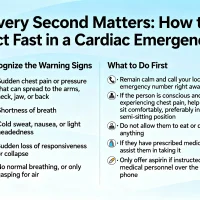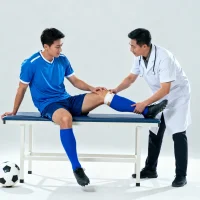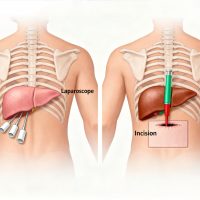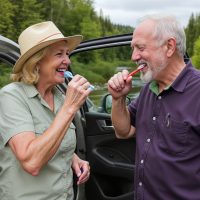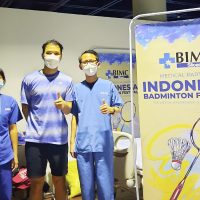
Understanding Drug Overdose: A Critical Health Emergency
When a High Becomes Harmful: Recognizing and Responding to Drug Overdose Emergencies – On World Drug Day, BIMC Kuta emphasizes the importance of recognizing drug overdose symptoms and knowing how to respond effectively. Drug overdoses are medical emergencies that require immediate professional intervention to save lives.
At BIMC Kuta, our emergency medical team treats drug overdose cases with the same urgency and professionalism as any other life-threatening condition. Every minute counts in overdose situations, and proper recognition can mean the difference between life and death.
Recognizing Drug Overdose Signs
Physical Symptoms to Watch For:
Respiratory Depression:
- Slow, irregular, or absent breathing
- Blue lips, fingernails, or skin (cyanosis)
- Gurgling or choking sounds
Cardiovascular Changes:
- Weak or irregular pulse
- Extremely high or low blood pressure
- Chest pain or heart palpitations
Neurological Symptoms:
- Loss of consciousness or unresponsiveness
- Confusion or disorientation
- Seizures or convulsions
- Extreme agitation or paranoia
General Warning Signs:
- Vomiting or nausea
- Cold, clammy skin
- Dilated or constricted pupils
- Inability to wake the person even with loud noises or pain
Immediate Response Protocol
Step 1: Call for Emergency Help
Contact BIMC Kuta Emergency immediately: +62 361 761 263 / +62 812 386 5548 Provide clear information about the situation and location
Step 2: Ensure Safety
Check if the person is conscious and responsive Position the person on their side to prevent choking Clear airways of any vomit or debris
Step 3: Monitor Vital Signs
Check breathing and pulse regularly Be prepared to perform CPR if trained Stay with the person until medical help arrives
Step 4: Gather Information
Collect any substance containers or paraphernalia Note the time symptoms began Provide this information to emergency responders
Important: Never leave someone experiencing an overdose alone. Do not attempt to make them vomit or give them food or drinks.
Drug Categories and Overdose Risks
Depressants (Alcohol, Opioids, Benzodiazepines)
Overdose Risk: Respiratory depression, coma, death
Warning Signs: Slow breathing, blue skin, unconsciousness
Stimulants (Cocaine, Amphetamines, Ecstasy)
Overdose Risk: Heart attack, stroke, hyperthermia
Warning Signs: Racing heart, high temperature, agitation
Hallucinogens (LSD, Mushrooms, Synthetic Drugs)
Overdose Risk: Dangerous behavior, psychological trauma
Warning Signs: Extreme confusion, panic, aggressive behavior
Synthetic Drugs (K2, Spice, Bath Salts)
Overdose Risk: Unpredictable and severe reactions
Warning Signs: Violent behavior, rapid heart rate, hallucinations
Prevention and Risk Reduction
For Individuals:
- Never use drugs alone
- Start with small amounts of unfamiliar substances
- Avoid mixing different drugs or combining with alcohol
- Know your limits and medical history
- Keep emergency contacts readily available
For Friends and Family:
- Learn overdose recognition signs
- Keep emergency numbers programmed in phones
- Know the location of nearest emergency medical facility
- Consider overdose reversal training programs
Environmental Safety:
- Ensure safe spaces for those struggling with addiction
- Remove judgment and stigma from overdose situations
- Promote open communication about drug use risks
BIMC Kuta’s Comprehensive Approach
Emergency Drug Overdose Treatment:
Immediate Stabilization: Advanced life support and monitoring Medical Detoxification: Safe withdrawal management under medical supervision Psychological Support: Crisis intervention and mental health assessment Family Counseling: Support and education for affected families
Addiction Treatment Services:
Medical Assessment: Comprehensive health evaluation and treatment planning Rehabilitation Programs: Structured treatment programs for substance abuse
Counseling Services: Individual and group therapy sessions
Aftercare Planning: Ongoing support and relapse prevention strategies
Why Choose BIMC Kuta for Addiction Treatment:
24/7 Emergency Care: Immediate response to overdose emergencies
International Standards: JCI-accredited facility with global protocols
Experienced Staff: Specialized addiction medicine professionals
Confidential Treatment: Respectful and discreet patient care
Multilingual Support: Communication in multiple languages
Insurance Acceptance: Working with various international insurance providers
Breaking the Stigma
Drug addiction is a medical condition, not a moral failing. At BIMC Kuta, we treat every patient with dignity and respect, regardless of their substance use history. Our medical team understands that addiction affects people from all backgrounds and walks of life.
Recovery is possible with proper medical support, counseling, and commitment. We provide a safe, non-judgmental environment where patients can begin their journey toward recovery and improved health.
Get Help Today
For Drug Overdose Emergencies: Call BIMC Kuta Emergency: +62 361 761263 Available 24 hours a day, 7 days a week
For Addiction Treatment and Counseling: Call BIMC Kuta for more information at +62 811 960 8500 (text only) for the schedule a confidential consultation with our addiction specialists
Walk-in Emergency Services: BIMC Hospital Kuta Jl. Bypass Ngurah Rai No. 100X, Kuta, Badung, Bali 80361
Need Medical Treatment?
BIMC Kuta provides comprehensive medical care for all health conditions, including addiction treatment and overdose emergencies. Our experienced medical team offers confidential, professional care for locals and international patients.
Whether you need emergency intervention, addiction counseling, or ongoing medical support, we’re here to help without judgment. Contact us today to discuss treatment options and begin your path to recovery.
Contact BIMC Kuta: Call Centre Hours +62 811 960 8500. Emergency Call 24 Hours: +62 361 761 263 / +62 812 386 5548 for international standard healthcare in Bali
www.bimcbali.com / IG : bimchospital.kuta / FB : BIMC Hospital Kutaz
On World Drug Day, we commit to providing compassionate, professional care for those affected by substance abuse. Recovery is possible, and help is available.
© 2025 BIMC Hospital Kuta. All rights reserved.
